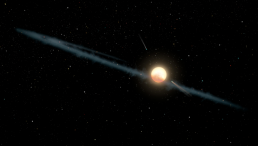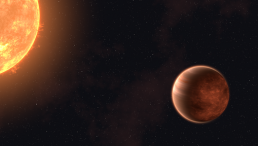Amy Thorpe, 34, the pregnant mother-of-three, died in her home in December 2018 after suffering an epileptic seizure. 7news reports that she had been drinking nearly three liters of Coke every day before the attack.
She was 15 weeks pregnant at the time of her death in Invercargill, New Zealand. Reports also claim that she had been suffering epilepsy, depression, and anxiety with her epileptic seizures happening at least once a week.
Thorpe's partner also said that she was 'addicted' to drinking Coke. According to the coroner's report, she was also a heavy smoker, and her heavy caffeine use may have contributed to her death.
Caffeine Addiction Increased Seizure Susceptibility
According to the coroner's report, Amy Thorpe had consumed around 80g of tobacco a week, reports Stuff. A friend of Thorpe said that she had more energy drinks a day than people have coffee and drank liters of V and Mother drinks.
In November 2018, Thorpe was referred to a neurobiologist named Graeme Hammond-Tooke, who recommended to change her medication because her seizures are becoming more frequent. But Thorpe is unwilling to follow the doctor's advice and to undergo testing.
She was later on discovered dead on her bed hanging over the bedside table.
Her caffeine addiction might have influenced her death, said Dr. Hammond-Tooke. The doctor noted that caffeine could increase a person's susceptibility to seizure, though it protected against seizures in some cases.
Dr. Hammond-Tooke believes that Thorpe's case is an example of excessive caffeine contributing to poor seizure control, reports Daily Mail.
'While modest intake of caffeine contained in drinks is not likely to affect seizure control, large amounts probably do increase seizures, and may have other adverse effects on health," he added.
Making Thorpe's case public could help people with epilepsy aware of the risks of excessive drinking of caffeine, Said coroner Robinson.
Read Also: Our Love-Hate Relationship with Coffee Explained
Caffeine's Role in Epilepsy
It is rare for dietary habits to be associated with seizure frequency in persons with epilepsy. According to a paper entitled "Heavy coffee drinking and epilepsy" published in Science Direct by Leonardo Bonilha, caffeine is a global stimulant, and reducing its intake can help treat epilepsy.
Their paper discussed a case about a man with partial symptomatic epilepsy whose daily habit of coffee drinking is associated with the increase in his seizure attacks. When he stopped drinking coffee, the patient witness a dramatic decrease in the frequency of his seizures.
Similarly, this case matches with Thorpe's case. Her doctor believes that drinking excessive Coke, which contains caffeine, has led to an increase in her seizures. Plus, her reluctance to follow her doctor's orders to change medication and undergo testing did not have a good result.
Furthermore, another study on the relationship between seizures and caffeine also said that the latter could increase seizure susceptibility and protect from seizures depending on the dosage, administration type, and the developmental stage when the caffeine exposure began.
With many studies conducted on the relationship between the two variables, it would be helpful to consider caffeine as a factor in achieving and maintaining seizure control among epileptic persons, unless clinical studies suggest otherwise.
Read More: No to Dementia: Drink Red Wine, Eat Dark Chocolates and Other Flavonoid-Rich Foods















